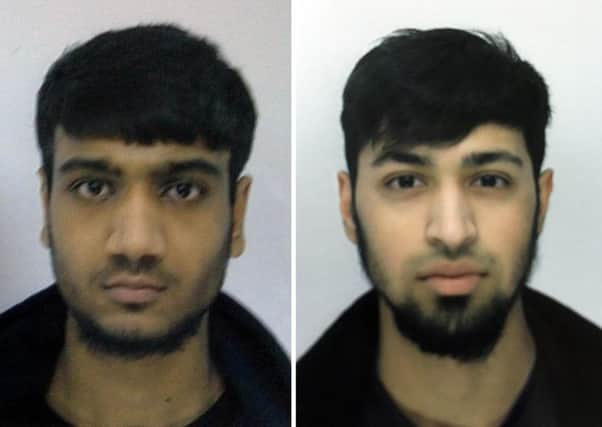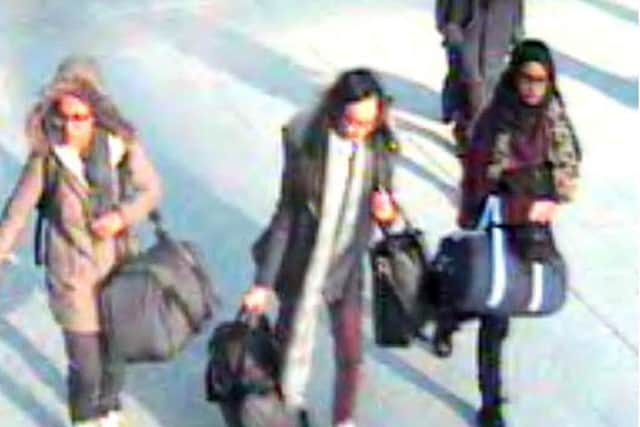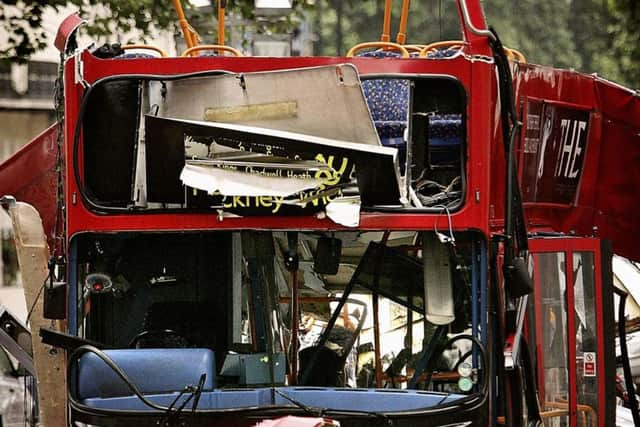Leeds faces ‘great challenge’ in bid to turn young away from terror


The authority is taking on a new support worker who will link up with schools, youth groups and after-school organisations to ensure they know what to do if young people are at risk of radicalisation.
Around 15 to 20 children from the city are referred each year to the Channel project, run by the Home Office and designed to stop vulnerable people being drawn into extremism.
Advertisement
Hide AdAdvertisement
Hide AdBut it is feared many more children who are potentially at risk are not being offered such support because their behaviour is not being recognised or the right procedures are not being put in place.


As part of the Counter-Terrorism and Security Act, passed this year, all local authorities, as well as NHS trusts, prisons, probation services and police forces, have a duty under the new legislation to have “due regard to the need to prevent people from being drawn into terrorism”.
Officials are also obliged to “support a range of out-of-school settings that are currently not regulated under education law”.
In a new report, Leeds City Council says this “represents a great challenge for the local authority considering the volume of such settings in the city”.
Advertisement
Hide AdAdvertisement
Hide AdIt adds: “In addition to these, there is still a great deal of work needed to be done with faith institutions and communities in the city to ensure that vulnerable individuals are safeguarded from being drawn into terrorism.”


The council is now set to employ a support officer, at a cost of £34,222 a year, to ensure the city is doing everything it can to support the Government’s anti-extremism Prevent agenda. Since 2007 it has been using funds from the Home Office to employ a Prevent Co-ordinator who leads efforts to tackle extremism in the city.
Neil Evans, the council’s director of environment and housing, said the new post would “create some additional capacity to assist in embedding the new statutory requirements of the act”.
He said: “The officer will primarily work with schools and communities to make sure they have appropriate safeguarding policies and procedures in place, and also to raise awareness of the of support that is available to help reduce the risk of individuals being drawn towards terrorist-related activity.”
Advertisement
Hide AdAdvertisement
Hide AdIt comes weeks before the 10th anniversary of the 7/7 bombings which killed 52 people and injured more than 770, carried out by three young men from Leeds and one from Huddersfield.
The UK’s terror threat level was raised last year from “substantial” to “severe” in response to conflicts in Iraq and Syria, and last month two 17-year-old boys from Dewsbury travelled to Syria in an apparent bid to join Islamic extremists Isis.
Earlier this year, three schoolgirls from Tower Hamlets in East London flew out to Syria to become ‘Jihadi brides’.
The Prevent strategy, which the Home Office says aims to “stop people becoming terrorists or supporting terrorism”, ranges from funding community campaigns to mentor young people at risk of being drawn into violent extremism to involving schools and universities in vigilance.
Advertisement
Hide AdAdvertisement
Hide AdUnder the new legislation, frontline council staff are expected to have a good understanding of the Prevent strategy, be trained to recognise vulnerability to being drawn into terrorism and be aware of the available schemes to deal with this.
In February it was reported that Leeds and Bradford were Prevent priority areas, meaning they get extra funding, and Calderdale and Kirklees were supported areas, meaning they get Home Office support.
It is understood that the national list has since changed but the Home Office declined to confirm which areas were now on the list.
Having supported status has allowed Calderdale to set up 14 local sessions of a theatre production entitled ‘One extreme to another’ in local secondary schools and a college.